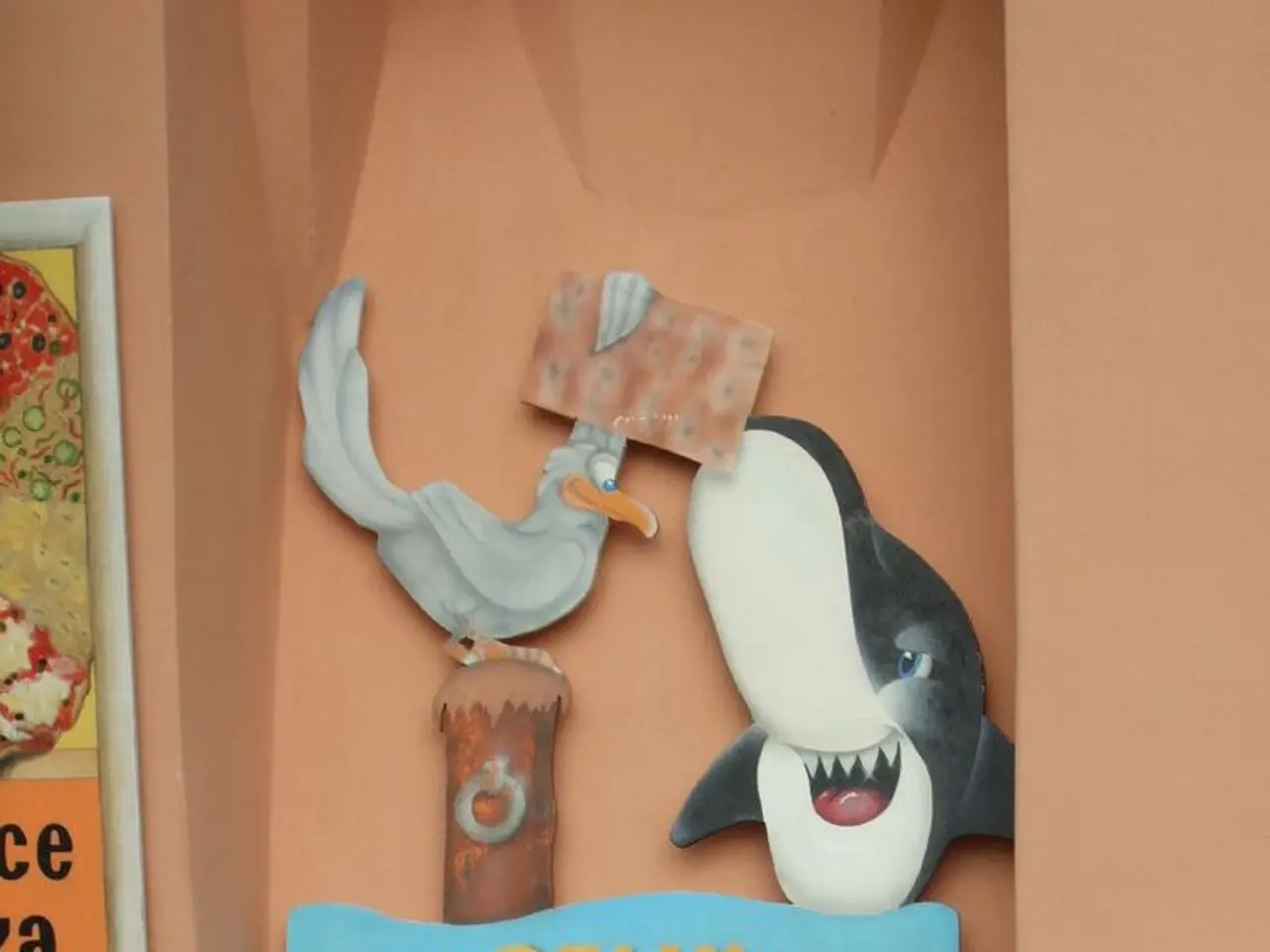New Zealand's National Emblem under Threat: The Kiwi
New Zealand's Kiwi Conservation: A Collaborative Effort
The kiwi, New Zealand's national symbol, is more than just a flightless bird. It serves as a barometer of the country's commitment to its natural heritage and a symbol of the nation's spirit. However, the survival of the kiwi is a challenge, one that requires a collaborative effort from various stakeholders.
Community and kiwi-led initiatives have been instrumental in boosting the population of certain kiwi species. For instance, the rediscovery of the little spotted kiwi, or kiwi pukupuku, on the West Coast has brought new hope for conservation efforts.
The use of predator-free sanctuaries has been crucial for the survival of the kiwi pukupuku, which was thought to exist only in predator-free areas or offshore islands. Efforts to create safe habitats away from introduced predators are essential for the species' survival.
Technology plays a role in conservation efforts, with the Department of Conservation (DOC) employing acoustic recorders to monitor kiwi movements and detect potential populations in wilderness areas.
Breeding programs are also part of the conservation strategy. Facilities such as Kiwi Park in Queenstown and the West Coast Wildlife Centre are involved in kiwi breeding programs to increase populations and ensure genetic diversity.
Despite these efforts, challenges persist. Predation by introduced species such as rats, cats, and dogs remains a significant threat to kiwi survival, particularly in mainland habitats. Ensuring safe habitats without predators is a constant challenge that requires constant vigilance and control measures.
Maintaining genetic diversity is crucial for the long-term survival of kiwi species, especially for those with limited populations like the kiwi pukupuku. Sustainability of conservation efforts is also a concern, requiring continued support from communities and funding agencies.
The kiwi is not just a symbol of New Zealand; it is an integral part of the country's unique ecosystems. The importance of the kiwi is being instilled in children through education in schools, fostering a sense of stewardship from an early age. Community involvement in kiwi conservation is growing, with people from various backgrounds joining efforts to protect this national symbol.
[1] Department of Conservation. (n.d.). Kiwi pukupuku. Retrieved from https://www.doc.govt.nz/nature/native-animals/birds/kiwi/kiwi-pukupuku/
[2] Ministry for the Environment. (2020). Kiwi conservation. Retrieved from https://www.mfe.govt.nz/publications/plants-and-animals/kiwi-conservation
[3] Kiwi Conservation Club. (n.d.). Kiwi Park. Retrieved from https://www.kiwiconservation.org/kiwi-park
[4] West Coast Wildlife Centre. (n.d.). Our work. Retrieved from https://www.westcoastwildlifecentre.org.nz/our-work
[5] New Zealand Herald. (2021, August 19). Kiwi pukupuku: How the little spotted kiwi was rediscovered. Retrieved from https://www.nzherald.co.nz/nz/kiwi-pukupuku-how-the-little-spotted-kiwi-was-rediscovered/KYLH2JF763NHFHG3XP4HJ7O26Q/
- The kiwis' survival is a global issue, affecting New Zealand's climate change policies and biodiversity.
- The popularity of wildlife has extended to fashion-and-beauty, with more companies adopting sustainable practices to reduce harm to insects.
- Lifestyle choices play a significant role in the well-being of ecosystems and the planet, from food-and-drink to home-and-garden choices.
- Despite individual efforts, building strong relationships is essential for successful conservation programs.
- Pets and their care contribute to the impact on ecosystems; choosing native species can support local ecology.
- With an increasing focus on travel, eco-tourism and responsible exploration of nature are becoming popular choices.
- Cars, while causing pollution, can transition towards sustainable options, such as electric vehicles, for a greener environment.
- Education-and-self-development can empower individuals to make informed decisions about their relationship with the environment and conservation efforts.
- Personal growth and self-improvement often prioritize sustainable practices, leading to positive lifestyle changes.
- Shopping habits can reflect a commitment to conservation – looking for eco-friendly and sustainable products is becoming commonplace.
- Career development can overlap with the concerns of conservation and the environment, with opportunities in fields such as ecology and climate change.
- Sports, from football in the Champions League to baseball, hockey, golf, and mixed-martial-arts, have built-in elements that can be used for sports-betting, contributing to the economy while creating awareness for conservation.
- European leagues, such as the premier-league, basketball leagues, and tennis events, can unite in promoting kiwi conservation and other ecological issues.
- Weather patterns play a critical role in climate change and wildlife habitats, making weather-forecasting essential for conservation and planning.
- Racing, including grand-prix Formula One and horse-racing, can attract attention and funding for conservation efforts.
- The survival of various birds, like the kiwi, is intertwined with their ecosystems' health, which also supports other wildlife.
- Nurturing a sense of stewardship towards the planet is crucial for the future of wilderness areas and species like the kiwi.
- The inclusion of conservation initiatives in schools and universities helps ensure the next generation is passionate about and prepared for protecting biodiversity.
- Supporting local conservation efforts, whether through volunteering or funding, can significantly contribute to conservation projects.
- Advocating for legislation that promotes conservation and limits habitat destruction can create policy changes that prioritize ecosystem health and wildlife.
- Raising awareness for conservation issues in the media can help attract funding and attention to pressing wildlife concerns.
- Collaborating with international organizations and institutions helps share knowledge, resources, and best practices for effective conservation strategies, fostering a global commitment to maintaining the planet's diverse wildlife and ecosystems.





